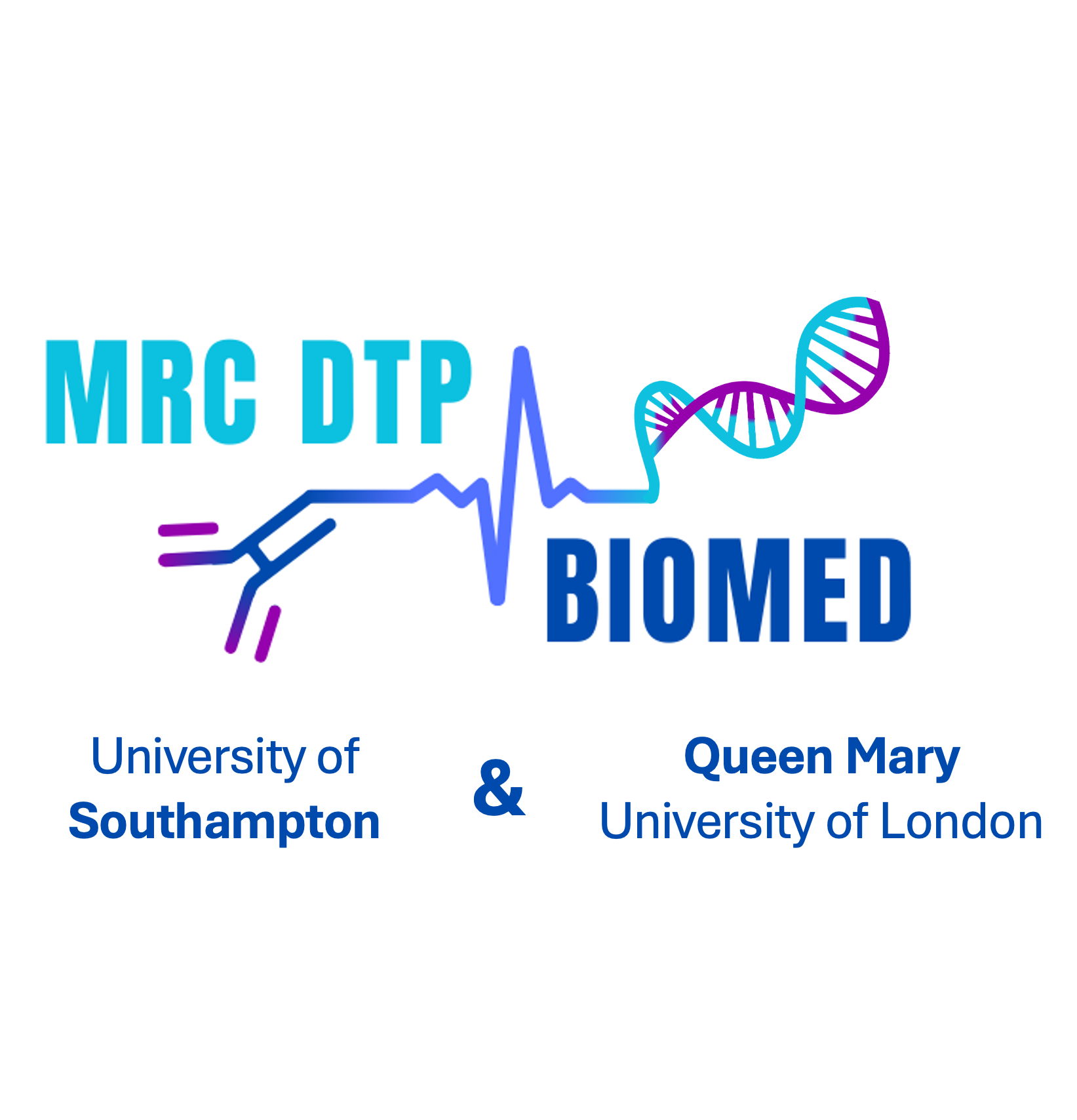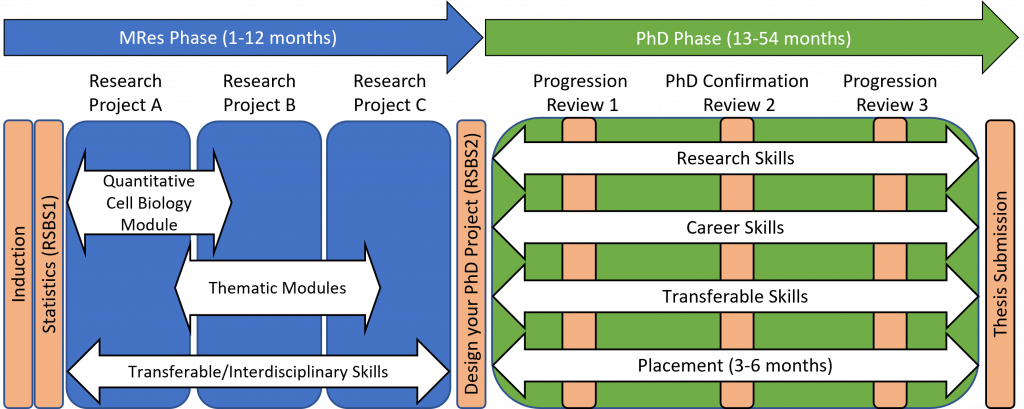Flexibility of pathways– Our MRC DTP studentships are available full-time (or pro-rata as part-time studentships) either as:
– 0+4 year PhD only pathway (iCASE); or
– 1+3 MRes/PhD pathway with 3 laboratory rotations of 12 weeks each in the MRes year
iCASE
iCASE (industrial Collaborative Awards in Science and Engineering) PhD projects are developed and carried out during the four-year PhD in close collaboration with a non-academic partner. These collaborations will provide MRC iCASE students with unique technical and transferable skills, as well as an insight into how commercial science is conducted, and entrepreneurial opportunities. Within your PhD you will spend a period of time with the non-academic partner (usually three to six months over the lifetime of the PhD).
Students, who choose the iCASE studentship may select their PhD project from year one, i.e., they don’t undertake the three 12-week rotation projects. Furthermore, participation in the taught modules is voluntary and not compulsory as in the MRes.
MRes/PhD
The programme is 1 year MRes + 3 years PhD. The MRes/PhD is undertaken at either the Faculty of Medicine, University of Southampton or the Faculty of Medicine and Dentistry, Queen Mary. In the MRes year (year 1) students study (at either Southampton or Queen Mary) taught modules that include statistics, computational coding and quantitative biology skills. Additionally, students undertake three 12-week rotation projects (usually two wet-lab studies and one of which must be predominantly mathematics, computational biology or bioinformatics) which are each assessed by a mini-thesis report (5,000 words). On successful completion and award of the MRes, students select one of the projects as the subject of their 3-year PhD (year 2-4).
Programme information: University of Southampton and Queen Mary University of London
| MRes Phase (month 1-12) | Induction: Welcome and introduction to the programme, Health and Safety, Ethics and Academic integrity, EDI workshop on unconscious bias and managing diversity. Data Management Plan, Good Laboratory Practise, Quality Management, Animal Ethics, Pastoral support, mentoring. Quantitative Biology Skills: Statistics, Bioinformatics, programming in ‘R’, use of Artificial Intelligence, Data Carpentry, Quantitative Cell Biology. Thematic Modules Interdisciplinary Skills: Selected by students, including Artificial Intelligence, Genomics Medicine, Bioinformatics & Systems Biology. Design your PhD Project: Project development with supervisory team. |
||||
|---|---|---|---|---|---|
| Research Skills | Career Skills | Transferable Skills | Placement | Additional | |
| PhD Phase (month 13-48) | Project based trainings, e.g., in vivo models, NMR/crystallography, microfluidics, biomedical devices, RNAseq, proteomics, advanced bioinformatics | Weekly research seminars with external and internal speakers to obtain depth and breadth, Team work, Critical Thinking, Leadership | PGR Transferable Skills Programme (>20 sessions per year), Entrepreneur training programme (1 week) | External laboratories, Industry, Institutions, Government. Coordinated with supervisors. | Presentation skills: Faculty and research conferences, weekly lab meetings, public speaking , 3 Minute Thesis. Outreach: Wessex Immunology Group, Science Day, LifeLab, STEM ambassadors, Centre of the Cell |
| Transition | Career support, potential transition placement (3-6 months), Viva-Voce examination, confirmation of award, graduation. | ||||


